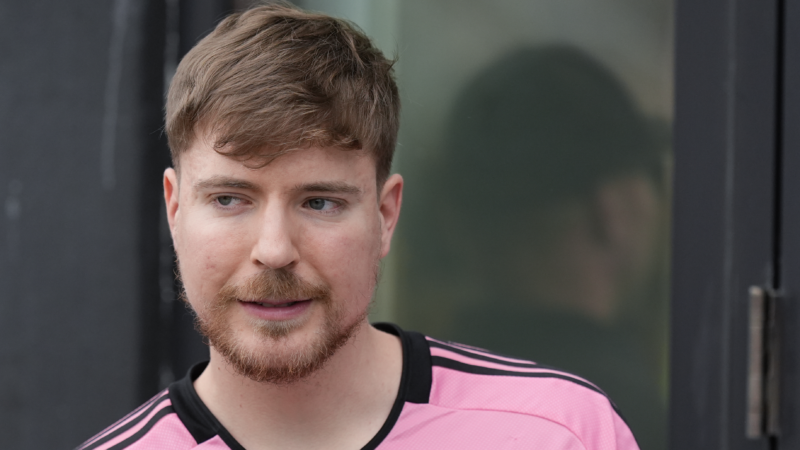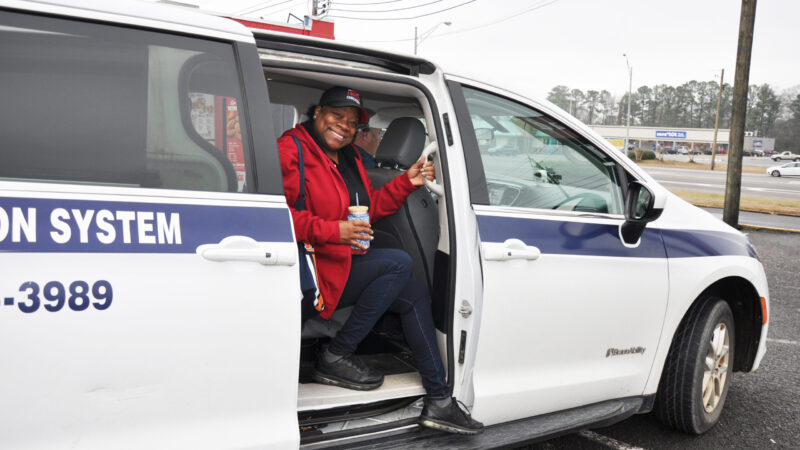Black Farmer Lawsuit Update
Tractor motors and irrigation systems dominate the conversation at the Central Alabama Farmers Co-op in Selma, but farmers here, especially black farmers, are also keeping close tabs on the discrimination lawsuit against the U.S. Department of Agriculture. Farmers alleged that the agency routinely denied them loans and other technical assistance offered to white farmers. In 1999 the government settled for $2.3 billion. But now, it turns out one of the Department of Justice lawyers defending the USDA wasn’t an attorney afterall. Arianne Callendar is general counsel with the Environmental Working Group, a vocal critic of the USDA and Justice Department’s handling of the Black Farmer lawsuit.
“Our contention is that those farmers should have an opportunity to at least have their cases re-reviewed because they made their decisions based on a misrepresentation by DOJ that this woman was actually licensed to make decisions in the case and practice law.”
The woman in question, Margaret O’Shea, handled only a small number of cases in her six months with DOJ, maybe only a handful. But Callendar says those farmers settled before going to trial.
“The amount of damages that a farmer can receive is only limited by what he can prove and the case goes back through 20 years of discriminatory action and I think the highest award was 4-million dollars. So it’s very high stakes here.”
But there’s one problem, says Central Michigan University law professor Ted Bolema.
“Usually when you hear about a case that involves someone complaining about an attorney being unlicensed they’re complaining about their own attorney, not their opponent’s attorney.”
Bolema says the plaintiffs will have a tough time proving that the settlements would have been higher if the Justice Department used a real attorney.
“Logically, there’s a bit of a jump there you’d have to make. Usually if an attorney is not licensed the presumption is that the attorney isn’t fully competent to handle the matter and you’d think that would favor the plaintiffs rather than the defendants.”
Still, Bolema concedes, the Margaret O’Shea scandal could end up costing the government and taxpayers.
“If the plaintiffs can get the cases reopened on the grounds that she wasn’t licensed they may well also be able to seek attorneys fees and other sanctions from the Justice Department because if these cases are reopened it does impose some costs on the plaintiffs to go through this whole process again.”
How significant could that be?
“Could run into the tens or hundreds of thousands of dollars.”
And that’s not counting the bad publicity the Justice Department is getting for hiring an unlicensed attorney. The DOJ declined to comment and Margaret O’Shea’s attorney did not return our calls. O’Shea also faces charges in California, where she worked in the Monterey County Public Defender’s Office. The Justice Department has not indicated whether it will pursue charges… but a subcommittee of the House Judiciary Committee is investigating O’Shea’s involvement in the black farmer lawsuit.
Surgeon general nominee Means questioned about vaccines, birth control and financial conflicts
During a confirmation hearing, senators asked Dr. Casey Means about her current positions and her past statements on a range of public health issues.
Kalshi reveals insider trading case against editor for MrBeast
With prediction markets booming, so have concerns about insider trading. Now, Kalshi has disclosed its first public actions against accounts suspected of trading on confidential information.
Greetings from Jordan’s Wadi Rum desert, where patches of green emerge after winter rains
Wadi Rum's otherworldly landscape is where Star Wars movies and The Martian were filmed. In late winter, plants emerge in this desert — but some are toxic to camels, so their herders must protect them.
Lack of transportation keeps many Alabamians from working. Rural public transit programs are trying to help
While lack of transportation is a major employment barrier in Alabama, few people take public transit to work. That dynamic is even more pronounced in rural areas.
When a horse whinnies, there’s more than meets the ear
A new study finds that horse whinnies are made of both a high and a low frequency, generated by different parts of the vocal tract. The two-tone sound may help horses convey more complex information.
Hundreds of American nurses choose Canada over the U.S. under Trump
More than 1,000 American nurses have successfully applied for licensure in British Columbia since April, a massive increase over prior years.






